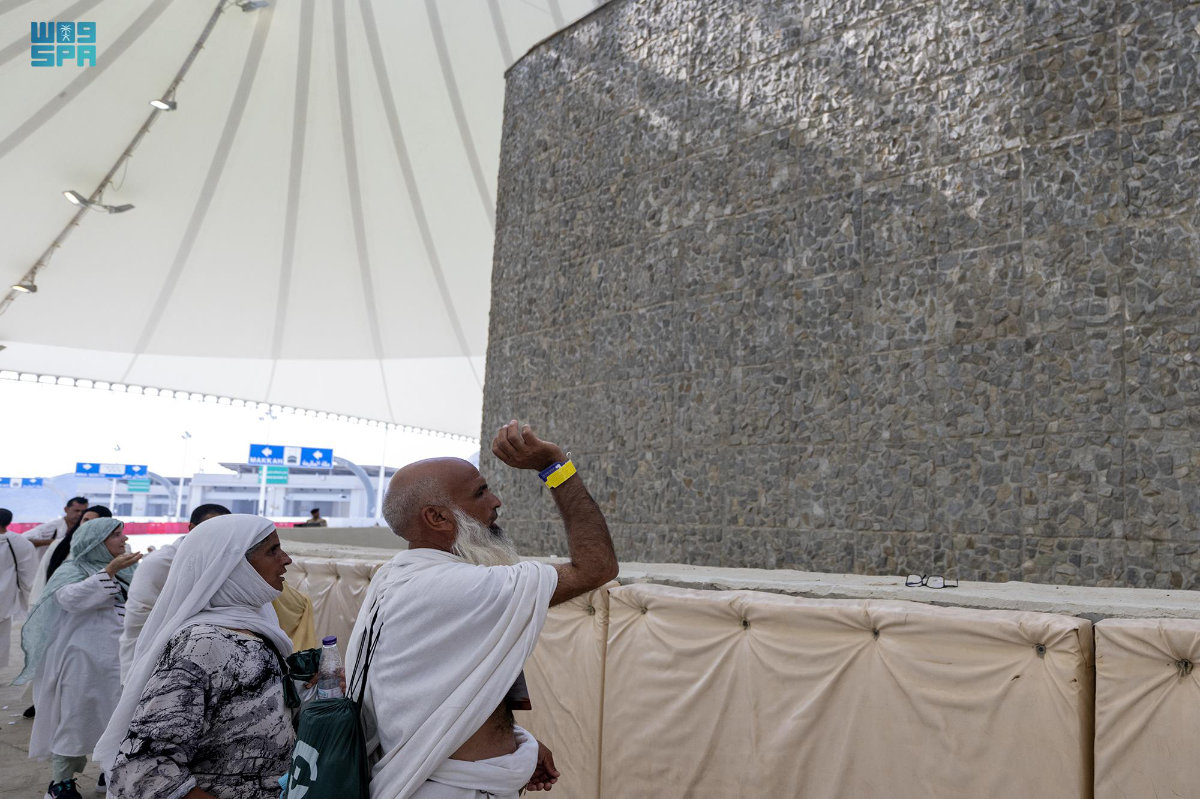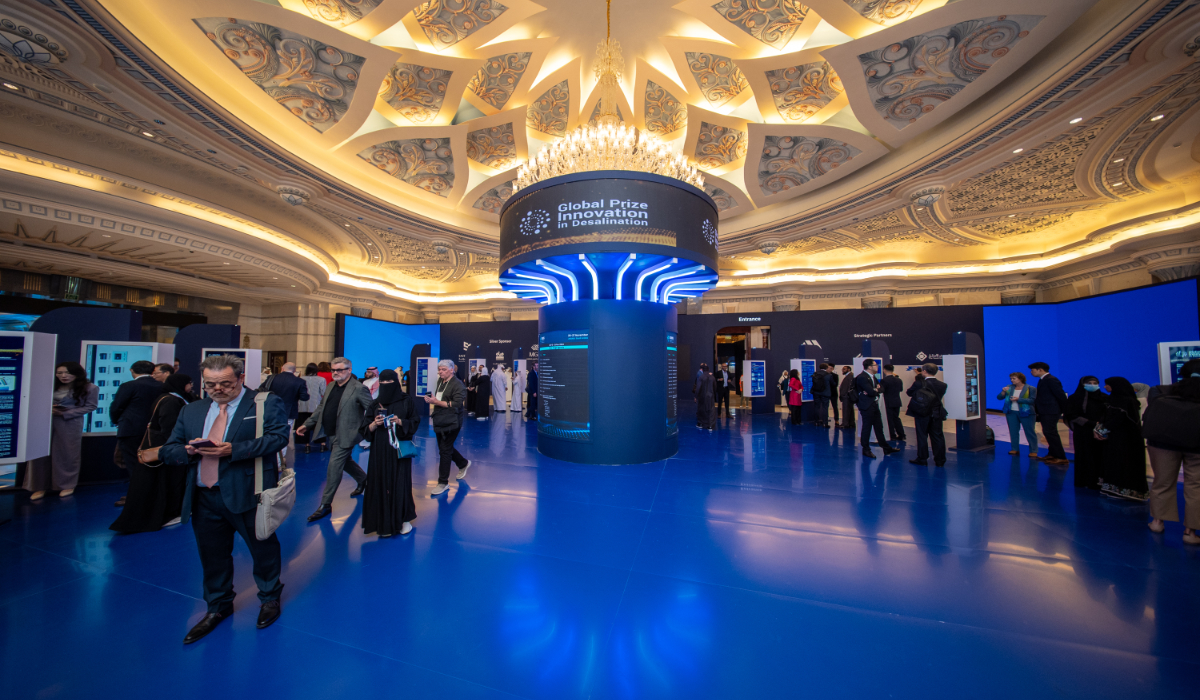MINA: More than 850,000 pilgrims had performed Tawaf Al-Ifadah by Sunday night in Makkah, the ritual marking the final days of the Hajj and the start of the Eid Al-Adha celebrations for Muslims around the world.
The long day started with masses of pilgrims embarking on a symbolic stoning of the devil in Muzdalifah under the soaring summer heat. The stoning is among the final rites of the Hajj, which is one of the Five Pillars of Islam.
It came a day after more than 1.8 million pilgrims congregated at a sacred hill, known as Mount Arafat, outside the holy city of Makkah, which Muslim pilgrims visit to perform the annual five-day rituals of Hajj. The Tawaf Al Ifadah is performed by Hajj pilgrims after the returning from Mina.
In a press conference on Sunday night, Col. Talal bin Abdulmohsen Al-Shalhoub, spokesperson of the Saudi Ministry of Interior, said that all pilgrims safely returned to their tents in Mina after departing from Muzdalifah.
He emphasized that security forces are continuing their operations to ensure the security and safety of the Guests of Allah throughout their stay in Mina, including their rituals at the Jamarat Bridge and within the Grand Mosque.“These services encompass crowd control and management on all routes connecting their accommodations in tents, the bridge, and the Grand Mosque, as well as during their tawaf. I urge all guests to adhere strictly to the instructions governing their ritual performances,” he stated.

Pilgrims cast stones at pillars in the symbolic stoning of the devil, one of the last rites of Hajj, at the Jamarat in Mina, near the holy city of Makkah, on June 16, 2024. (SPA)
The spokesperson also advised pilgrims not to carry personal belongings when heading to the Jamarat Bridge or the Holy Mosque.
“Furthermore, I urge those intending to leave Mina on the second day of Tashreeq to follow the specified guidelines,” he added.
The days of Tashreeq are the three days that follow the 10th of Dhu al-Hijjah, Eid al-Adha, and are known for the ritual of stoning the three pillars in Mina, symbolizing the rejection of temptation and evil.
However, it is permissible for pilgrims to leave Makkah before sunset on the 12th day of Dhul Hijjah.Al-Shalhoub further reported that the 911 center in the Makkah region had received a total of 78,872 calls on the 10th of Thul Hijjah, covering security reports and service inquiries, all of which were promptly addressed.
He highlighted the close monitoring by Saudi leadership of all security sectors, noting continuous enhancements in their performance each year.“Our security personnel serve as exemplary role models in fulfilling their duties and facilitating the Hajj journey for pilgrims,” he concluded.
For his part, Ayedh Al-Ghuwainem, deputy minister of Hajj and Umrah for Hajj affairs said that the organizational plans and efforts were implemented in harmony with all the participating Hajj agencies.
“The stoning process occurred safely and tranquilly within just ten hours, achieving a compliance rate of 95 percent with the instructions,” he said.
He further added that the plans were designed to accommodate the diverse jurisprudential preferences of pilgrims using modern technology and preplanned schedules for grouping the pilgrims.Al-Ghuwainem stated that more than 800,000 pilgrims had arrived in Mina before dawn on Sunday, and by 8 a.m., all pilgrims had reached Mina.
On their arrival at the Jamarat Bridge, some 70 percent of the pilgrims used the first and fourth floors, while the rest of them went through the second and third floors, according to the deputy minister.
“Moreover, more than 850,000 worshippers have so far performed the Ifadah tawaf since midnight using shuttle bus services from and to the Grand Mosque,” he said.
The deputy minister added that the challenge they faced along with the concerned authorities was that most of the pilgrims preferred to go on foot, despite all the awareness campaigns and the availability of all means of transportation. He also urged the pilgrims to follow the instructions.





























